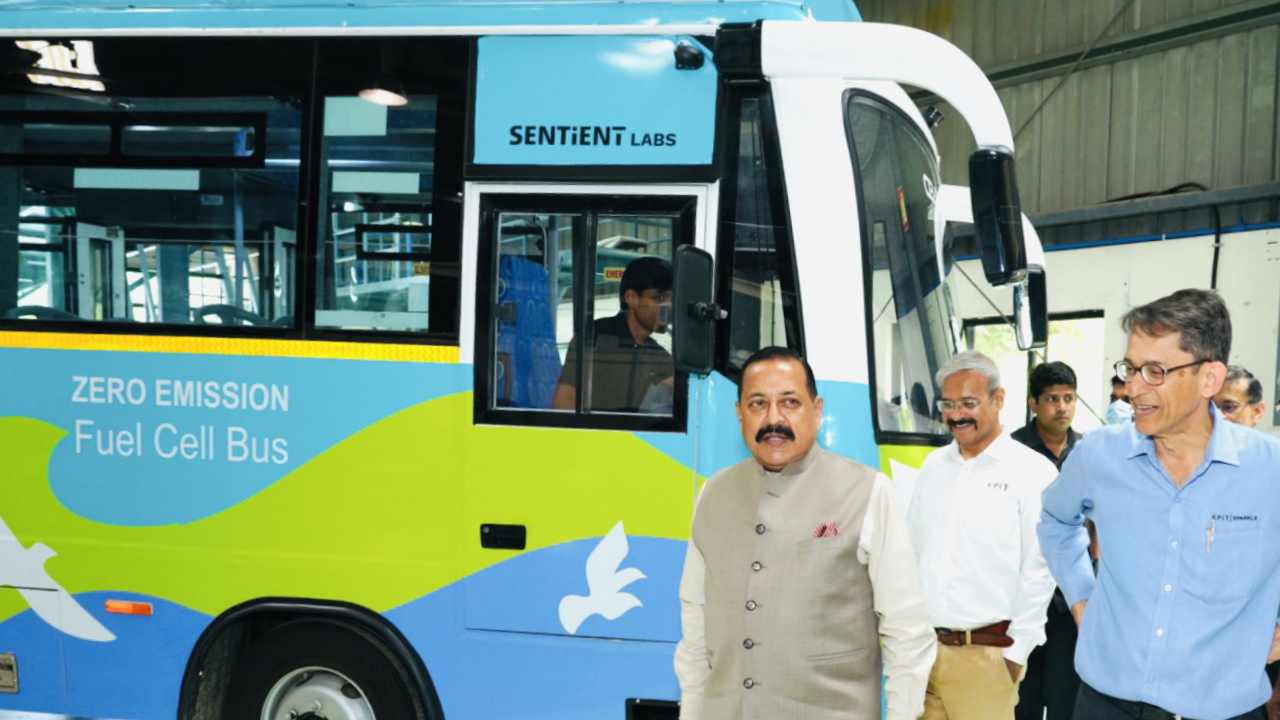Union Minister of State for Science and Technology Dr Jitendra Singh launched India’s first truly advanced hydrogen fuel cell bus.
Developed by KPIT-CSIR in Pune, the fuel cell bus uses hydrogen and air to generate electricity, and the only effluent from the bus is water.
For comparison, a diesel bus plying long-distance routes typically emits 100 tonnes of CO2 per year, and India has over a million such buses.
Additionally, the high efficiency of fuel cell vehicles and the high energy density of hydrogen ensure that fuel cell trucks and buses have lower operating costs per kilometer than diesel-powered vehicles.
“Green hydrogen is an excellent clean energy vector that enables deep decarbonization of difficult-to-abate emissions from the refining industry, fertiliser industry, steel industry, cement industry and also from the heavy commercial transportation sector,” the union minister said.
“India can pole-vault from being net importer of fossil energy to becoming net exporter of clean hydrogen energy,” he added.
Dr Jitendra Singh points out that around 12-14% of CO2 and particulate emissions come from diesel-powered heavy-duty vehicles, which are decentralized emissions and therefore difficult to capture.
The minister said hydrogen is a great way to eliminate road emissions from the vehicle sector. He said India is also aiming to increase inland waterways for goods and passenger transport.
The Minister appreciated the joint development efforts of KPIT and CSIR-NCL and said that the technical skills of Indian scientists and engineers are the best in the world and not less at very low cost.





























